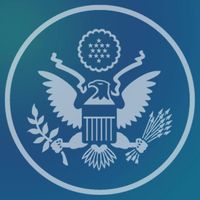South Korea's Political Storm: A Nation at the Crossroads
January 6, 2025, 9:41 am

Location: United States, District of Columbia, Washington
Employees: 10001+
Founded date: 1800

Location: China, Hong Kong, Hong Kong Island
Employees: 1001-5000
Founded date: 1835
South Korea stands at a precipice. The political landscape is turbulent, like a stormy sea threatening to capsize a fragile vessel. At the center of this chaos is President Yoon Suk Yeol, suspended and surrounded by controversy. His failed attempt to impose martial law has plunged the nation into a crisis, with citizens rallying in the snow, braving the elements to voice their support or dissent.
On January 5, 2025, U.S. Secretary of State Antony Blinken arrived in Seoul, stepping into a political minefield. His mission? To navigate the delicate waters of South Korean politics while maintaining U.S. interests in the region. The backdrop is a nation divided, with protests erupting against Yoon's leadership. Thousands of South Koreans took to the streets, their breath visible in the frigid air, embodying the spirit of a populace unwilling to remain silent.
Yoon's political troubles began with a botched declaration of martial law in December. This misstep sent shockwaves through the country, igniting protests and leading to his suspension. Now, as the clock ticks down to the expiration of an arrest warrant against him, the stakes are higher than ever. Yoon remains holed up in the presidential residence, surrounded by loyal security forces, as the nation watches with bated breath.
The political crisis has drawn international attention. Blinken's visit is not just a diplomatic gesture; it’s a lifeline for a key ally in a region fraught with tension. The U.S. has a vested interest in South Korea's stability, especially with North Korea's unpredictable behavior and China's growing influence. Blinken's challenge is to reassure South Korea of U.S. support while avoiding the pitfalls of its internal strife.
The political landscape is a chessboard, with each move carrying significant consequences. Blinken's talks with South Korean Foreign Minister Cho Tae-yul will focus on preserving trilateral cooperation with Japan, particularly in intelligence sharing regarding North Korea. Yet, the undercurrents of domestic unrest cannot be ignored. Critics on the left may view Blinken's visit as an endorsement of Yoon's faltering regime, complicating the narrative further.
Yoon's supporters rally with fervor, their voices rising above the din of dissent. They see him as a bulwark against chaos, a leader fighting for the nation's integrity. Yet, the specter of criminal charges looms large. Accusations of insurrection hang over him like a dark cloud, threatening to rain down consequences that could change the course of South Korean history. If arrested, Yoon would be the first sitting president to face such a fate, a precedent that could ripple through the political fabric of the nation.
The protests are a reflection of a society grappling with its identity. South Korea has a rich history of democratic resilience, emerging from decades of authoritarian rule. The current crisis tests the strength of its institutions, built over three decades of hard-fought democracy. Citizens are not merely spectators; they are active participants in shaping their future. The snowstorm that blanketed Seoul on January 5 became a metaphor for the struggle—a harsh environment that could not extinguish the fire of civic engagement.
As the Constitutional Court prepares to hear Yoon's impeachment trial, the nation holds its breath. The court has a maximum of 180 days to decide whether to dismiss Yoon or restore his powers. The stakes are monumental. The outcome will not only determine Yoon's fate but also set a precedent for future leaders. Will South Korea continue to uphold the rule of law, or will it falter under the weight of political maneuvering?
In the shadows of this political drama, the specter of North Korea looms. The regime in Pyongyang watches closely, ready to exploit any signs of weakness. The U.S. and South Korea must present a united front, but internal discord complicates this mission. Blinken's role is to reassure allies while navigating the treacherous waters of South Korean politics. His high profile may shield him from some criticism, but the political landscape is fraught with landmines.
As the world watches, South Korea's future hangs in the balance. The nation is at a crossroads, with citizens demanding accountability and transparency. The protests are a testament to the enduring spirit of democracy, a reminder that the voice of the people cannot be silenced. The outcome of this political storm will shape the course of South Korea for years to come.
In the end, the question remains: Can South Korea emerge from this crisis stronger, or will it be swept away by the tides of political turmoil? The answer lies in the hands of its citizens, their resolve, and the institutions that have weathered many storms before. The journey ahead is uncertain, but one thing is clear: South Korea is a nation alive with possibility, poised to redefine its destiny amidst the chaos.
On January 5, 2025, U.S. Secretary of State Antony Blinken arrived in Seoul, stepping into a political minefield. His mission? To navigate the delicate waters of South Korean politics while maintaining U.S. interests in the region. The backdrop is a nation divided, with protests erupting against Yoon's leadership. Thousands of South Koreans took to the streets, their breath visible in the frigid air, embodying the spirit of a populace unwilling to remain silent.
Yoon's political troubles began with a botched declaration of martial law in December. This misstep sent shockwaves through the country, igniting protests and leading to his suspension. Now, as the clock ticks down to the expiration of an arrest warrant against him, the stakes are higher than ever. Yoon remains holed up in the presidential residence, surrounded by loyal security forces, as the nation watches with bated breath.
The political crisis has drawn international attention. Blinken's visit is not just a diplomatic gesture; it’s a lifeline for a key ally in a region fraught with tension. The U.S. has a vested interest in South Korea's stability, especially with North Korea's unpredictable behavior and China's growing influence. Blinken's challenge is to reassure South Korea of U.S. support while avoiding the pitfalls of its internal strife.
The political landscape is a chessboard, with each move carrying significant consequences. Blinken's talks with South Korean Foreign Minister Cho Tae-yul will focus on preserving trilateral cooperation with Japan, particularly in intelligence sharing regarding North Korea. Yet, the undercurrents of domestic unrest cannot be ignored. Critics on the left may view Blinken's visit as an endorsement of Yoon's faltering regime, complicating the narrative further.
Yoon's supporters rally with fervor, their voices rising above the din of dissent. They see him as a bulwark against chaos, a leader fighting for the nation's integrity. Yet, the specter of criminal charges looms large. Accusations of insurrection hang over him like a dark cloud, threatening to rain down consequences that could change the course of South Korean history. If arrested, Yoon would be the first sitting president to face such a fate, a precedent that could ripple through the political fabric of the nation.
The protests are a reflection of a society grappling with its identity. South Korea has a rich history of democratic resilience, emerging from decades of authoritarian rule. The current crisis tests the strength of its institutions, built over three decades of hard-fought democracy. Citizens are not merely spectators; they are active participants in shaping their future. The snowstorm that blanketed Seoul on January 5 became a metaphor for the struggle—a harsh environment that could not extinguish the fire of civic engagement.
As the Constitutional Court prepares to hear Yoon's impeachment trial, the nation holds its breath. The court has a maximum of 180 days to decide whether to dismiss Yoon or restore his powers. The stakes are monumental. The outcome will not only determine Yoon's fate but also set a precedent for future leaders. Will South Korea continue to uphold the rule of law, or will it falter under the weight of political maneuvering?
In the shadows of this political drama, the specter of North Korea looms. The regime in Pyongyang watches closely, ready to exploit any signs of weakness. The U.S. and South Korea must present a united front, but internal discord complicates this mission. Blinken's role is to reassure allies while navigating the treacherous waters of South Korean politics. His high profile may shield him from some criticism, but the political landscape is fraught with landmines.
As the world watches, South Korea's future hangs in the balance. The nation is at a crossroads, with citizens demanding accountability and transparency. The protests are a testament to the enduring spirit of democracy, a reminder that the voice of the people cannot be silenced. The outcome of this political storm will shape the course of South Korea for years to come.
In the end, the question remains: Can South Korea emerge from this crisis stronger, or will it be swept away by the tides of political turmoil? The answer lies in the hands of its citizens, their resolve, and the institutions that have weathered many storms before. The journey ahead is uncertain, but one thing is clear: South Korea is a nation alive with possibility, poised to redefine its destiny amidst the chaos.